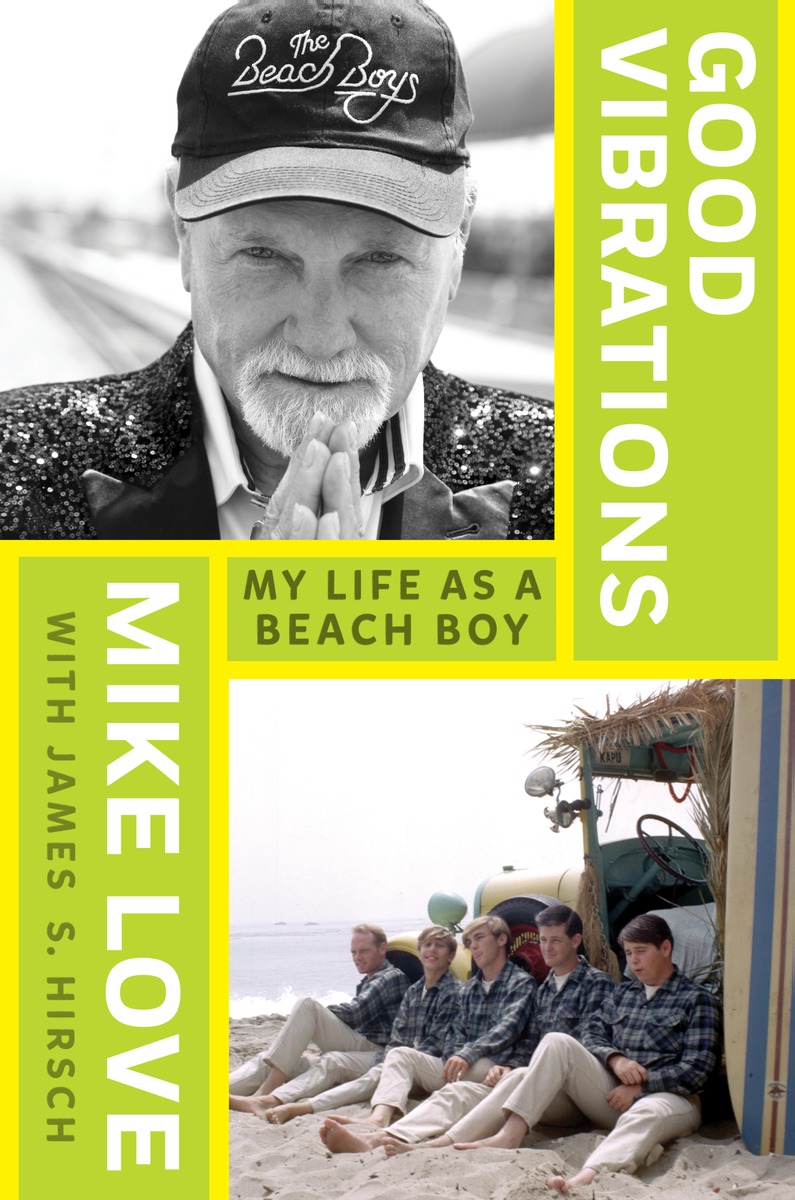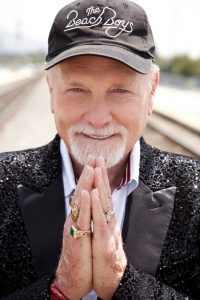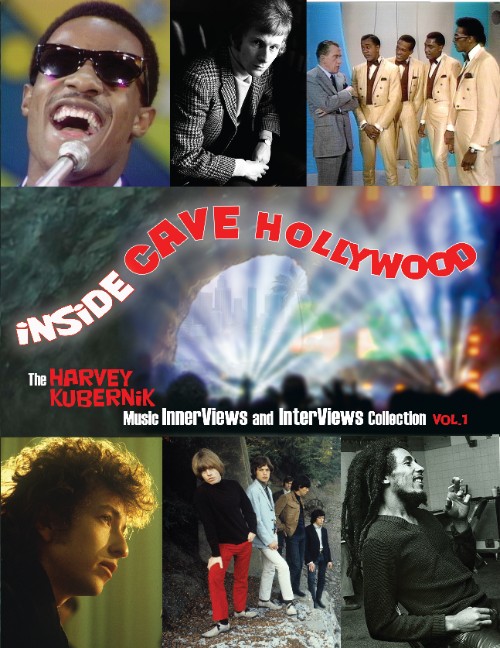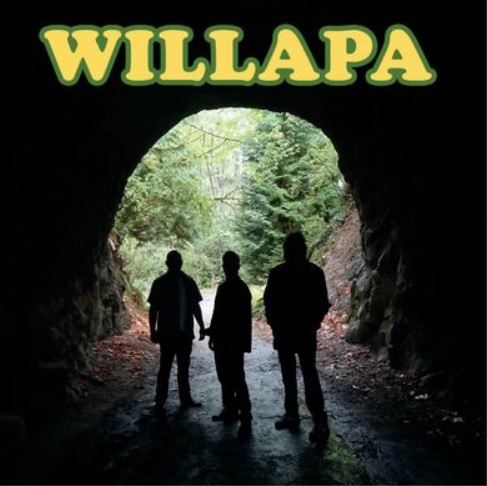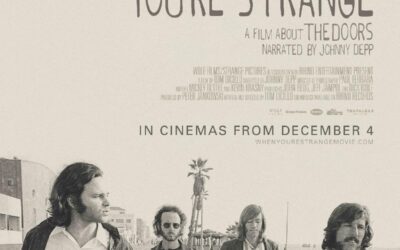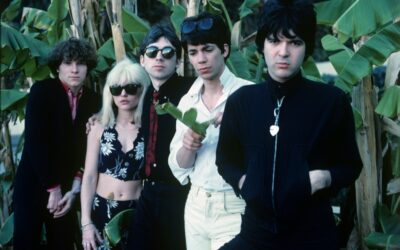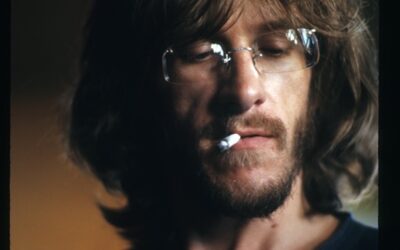Harvey Kubernik on Mike Love’s new autobiography
By Harvey Kubernik c 2016
The Beach Boys are arguably the most popular American rock band of all time, with thirteen Gold Albums, fifty-five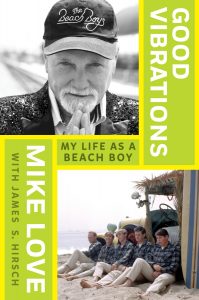 Top 100 singles, and four #1 hits, spanning more than five decades. The appeal of their music is eternal, now stretching across four generations, and they remain a major touring act in the United States and around the world. Yet they are significant not merely as a pop phenomenon, but as avatars of more than half a century of American musical and cultural history.
Top 100 singles, and four #1 hits, spanning more than five decades. The appeal of their music is eternal, now stretching across four generations, and they remain a major touring act in the United States and around the world. Yet they are significant not merely as a pop phenomenon, but as avatars of more than half a century of American musical and cultural history.
Now, Mike Love—one of the group’s founders, its main lead singer, and one of its principal lyricists—delivers the most genuine, comprehensive, and engaging memoir of the group ever written, GOOD VIBRATIONS: My Life as a Beach Boy with James Hirsch, published by Blue Rider Press.
The book’s arrival coincides with the fiftieth anniversary of the Beach Boys’ iconic and critically hailed song of the same title.
Mike Love is a founding member of the Beach Boys, who has been the primary lead singer of the group and one of its principal lyricists since its formation in 1961. His credits include such pop classics as “Good Vibrations,” “California Girls,” “I Get Around,” “Fun Fun Fun,” “Surfin’ USA,” and “Kokomo.” Love has received an Ella Award for his songwriting. As part of the Beach Boys, he is a member of Rock and Roll Hall of Fame and the Vocal Group Hall of Fame, and has received a Grammy Lifetime Achievement Award.
James S. Hirsch is a journalist and New York Times-bestselling author whose books include biographies of Willie Mays and Rubin “Hurricane” Carter, as well as examinations of military issues, the health care system, and global philanthropy. Hirsch won the Christopher Award for Walk in Their Shoes: Can One Person Change the World.
Love is the only member of the group who has been with it continuously since its inception in 1961. Nevertheless, few people know what he has actually done for the Beach Boys, as his contributions have often been ignored, marginalized, or literally written out of the many previous unauthorized books about the band.
It’s about time Mike Love had an authorized print platform to tell his side of the story from life behind and in front of the Beach Boys.
In candidly describing his journey, Mike recalls how this one-time apprentice in his family’s sheet-metal business became the enduring front man for America’s most successful rock band, who has appeared to date in an amazing 5,600 concerts in twenty-six countries.
Mike wrote the lyrics to eleven of the twelve original Beach Boys songs that were Top Ten hits while providing the lead vocals on ten of them. He conceived some of the most recognizable lyrics in pop music for such songs as “California Girls,” “Surfin’ USA,” “Fun Fun Fun,” “I Get Around,” and “Kokomo,” often in collaboration with his extraordinarily gifted first cousin Brian Wilson.
Inside GOOD VIBRATIONS: My Life as a Beach Boy, Love describes his songwriting process with Brian Wilson. “Either one of us might come up with a concept—what’s this song about? Brian started with a melody, which he played for me; my specialty was finding the hook, or phrase, that drew people in. I typically wrote the bulk of the words, while Brian structured the harmonies to fit our voices. I weighed in on the arrangements as well, in particular the bass parts.”
A press release from Blue Rider Press for GOOD VIBRATIONS: My Life as a Beach Boy also cites Murry Wilson, the Wilson brothers’ father and Mike’s uncle.
“It was Murry who sought to fulfill his own ambitions for musical success through his sons and nephew. His physically and psychologically abusive behavior, however, caused Brian to fire him as their producer and manager in a dramatic confrontation just a few years into their professional career. Fatefully, however, Murry was left in control of the Beach Boys’ lucrative music publishing rights.
“Painfully, Mike discusses the complicated legal actions he reluctantly had to take against Brian and others after Murry’s death to finally get credit for his lyrics. It was perhaps the largest proven fraud case in music history, involving not only creative credit but tens of millions of dollars in unpaid past royalties, and many millions more in future royalties. Unfortunately, it was also one of the most outrageous examples of the systemic corruption and exploitation of artists that existed in the music industry, and Mike discloses the full extent of the mendacity.”
The Blue Rider press statement further announces “Mike revealing the bitter rifts that developed within the Beach Boys because of that legal action and others, as well as the abuse and even death threats he was subjected to by misguided fans who mistakenly believed that he had opposed the new musical directions Brian wished to take with the now-classic album Pet Sounds or the famously uncompleted album Smile, or that Mike tried to push Brian out of the group. (He never did either.)
“After going through several rounds of estrangement and reconciliation over the decades, which Mike attributes mainly to Brian’s heavy drug use and bouts with mental illness, Mike and Brian are currently not in communication with each other.”
Love turned to Transcendental Meditation in the late 1960s to strengthen his own inner harmony, becoming a forerunner of America’s current embrace of meditation and mindfulness.
Mike studied with TM’s most famous practitioner at the time, Maharishi Mahesh Yogi, at his ashram in India along with the Beatles, Mia Farrow and her younger sister Prudence (the inspiration for the Beatles song “Dear Prudence”), and the pop star Donovan. A teacher of TM since 1968 who meditates twice a day, Mike credits it with saving his life after he was hospitalized with a breakdown in 1970, and helping him to tame his fiery temper.
“It’s a personal growth program,” Love told me in a 1974 interview conducted for Melody Maker. “Transcendental meditation has been very helpful in unfolding our individual capacity for creativity.
“We met the Maharishi Mahesh Yogi in December 1967 when we did a United Nations show in Paris. The whole group now meditates. Al and I are teachers. Any group is only as strong as its members. I don’t think I’d be in the group if it wasn’t for meditation. “It raises your tolerance to tension and stress. It helps against the fatiguing effects of physical and mental activity.”
At Maharishi’s ashram in 1967, Mike helped Paul McCartney with the lyrics to “Back in the U.S.S.R.” and forged a special bond with George Harrison.. Praying with Mike in his cave-like dwelling, Maharishi uttered memorable words to him on his twenty-seventh birthday.
Working to extend TM’s benefit to others, Love tried in the 1970s to persuade the Veterans Administration to offer it to stressed-out Vietnam veterans but was summarily rebuffed. Mike is delighted that since then, however, meditation has become part of the mainstream, offered by Fortune 100 companies, universities, and, yes, the VA.
A devoted environmentalist since the 1960s—a commitment that has often been reflected in the lyrics of the Beach Boys’ songs—Mike spoke at both the landmark Earth Summit in Rio de Janeiro in 1992 and Earth Day 2000 on the Mall in Washington, D.C., where the Beach Boys have also played several memorable Fourth of July concerts.
Although perceived by some as leaning Republican because of their participation in such patriotic national observances, Mike notes that the Beach Boys have always avoided becoming involved in partisan politics, and that his own public stances on the environment and against war would hardly be considered conservative by most.
I’ve had verbal encounters and interviews with Mike Love that stretch back to 1969. We would on occasion see each other at the West Hollywood health food restaurant and shop named HELP. (Health, Education, Love, Peace). He knew Warren Stagg, the owner of HELP, one of Los Angeles’ first vegetarian eateries. Fellow Pisces Love would often tout seaweed salad and boysenberry shakes. Love was a natural foods advocate who could hold his own with Gypsy Boots.
At HELP Love would also talk about George Harrison, Donovan, meditation and the Jerry Leiber and Mike Stoller songbook. Around a HELP table, Love would discuss seminal R&B records we both heard and relished on the AM radio dial in Los Angeles.
I was really impressed one evening when I discovered that on an early ‘60s Beach Boys’ tour of the mid-west, Love split off from the band one late night with a local St. Louis DJ, Dave Diamond, to witness a Chuck Berry concert held on the wrong side of the tracks.
Stephen John Kalinich first encountered Mike Love in 1967 when he was a staff writer for Brother Records. The
noted poet and tunesmith in late 2016 will release his album California Feeling 2 on vinyl from MsMusic Productions.
“I initially met Mike in the sixties when Brother Records signed me as an artist and composer and became my first publishers,” remembers Kalinich in 2017.
“He lived in Coldwater Canyon and drove a motorcycle. Mike was extremely kind to me. He took me all around Beverly Hills, introducing me to people like his tailor and Sky Saxon of the Seeds, when I was working at a flower shop on San Vincente in Brentwood.
“Mike also offered me the usage of his car at the time, a Rolls Royce if I needed it. It felt like I was in a surreal dream. There was energy in the air and electricity. He loved my poems,” Kalinich volunteers, who later co-wrote songs with Carl Brian and Dennis Wilson. Kalinich penned “Be Still” and “Little Bird” with Dennis on the Beach Boys’ Friends album.
“Mike was funny and would sometimes mispronounce my name on purpose like our joke. He came up with an idea called rent a poet and he said I would get 10 percent and they would get 90. It was a joke. He had that kind of humor. Mike was always humorous in a dry way with me and we had some serious conversations about peace and stillness.
“I also had a great writing relationship with Dennis and later Brain. Carl produced my first record ‘Leaves Of Grass’ at Studio B at Capitol Records in Hollywood.
“I believe Mike’s voice and being a front man for the Beach Boys is a key element to their success and not just the songwriting. All of them created a unique sound to me. I do not discredit any of the players on the sessions but the Beach Boys themselves made a unique valuable sound vocally that puts them in a class by themselves and they are all needed Mike who was and is a key component for me,” Kalinich suggests.
“Brian never complained to me personally about Mike the time is spent with him Brian loved him then and always said good things. Brian built him up to me.
“I think Mike is under rated as a song writer. I find some of his qualities Zen-like in the sense I was very heavy as a teenager creation of the universe, world peace and deep spiritual. And Mike was able to have a gift to take the everyday experience and make a song out of it see its beauty and joy and make it fun.
“In a sense, Mike lightened me up a touch which I needed. He we able to capture the everyday experience and make it for all people and to me that is a gift and easily accessible to people which is a rare quality to see life alive in everything in cars and girls and fun and he captured it and he also wrote beautiful songs to like the ‘Warmth Of The Sun’ and many more.
“I think Mike taught me I could say it simply as I did in ‘Little Bird’ and ‘Be Still’ and to allow the partner to put a good melody to the words and make it easier to find notes to fit the thoughts. We both meditate and he came to it before me but I already had written ‘Be Still’ and had my own Stillness practice before I meditated. I think that was when we cemented our friendship and relationship and we also both love and loved America. I never had a serious argument with him all these years.
“I was booked to open for the Maharishi on a planned tour with the Beach Boys. The group was taking me out buying me a wardrobe. I was very excited but a week before the promoters were concerned about a spoken word poet opening. They were not sure the crowds would like it. It wasn’t the Beach Boys who cancelled it contrary to opinion. It was the promoters. So they pulled me out and I did not go. I was a hugely disappointed then but maybe it was a blessing in disguise,” concludes Kalinich.
Mike Love is a 1958 Dorsey High School graduate and was captain of his cross-country team. Love was a by-product of a multi-racial school near South Central L.A. that impacted his record collection and the way he crafted tunes with Brian Wilson. Love also attended summer school at Manuel Arts in Watts.
Love’s understanding of R&B music genres and styles gleaned from his exposure to the fifties and sixties melting pot culture of L.A. definitely informed his life and subsequent roles as the Beach Boys’ mainstay.
Brian Wilson in a 2011 interview with me praised Love’s involvement with the recording of “Good Vibrations.”
“Mike’s bass part was the one. Mike’s voice on it was the thing that sold me on it. Mike’s singing got us famous. Because his voice has a quality to it that goes hand and hand with the song. He was the appropriate singer for the song.”
Further evidence of the influence of the Beach Boys, even on the Rolling Stones, can be heard on “What to Do,” a selection on the Andrew Loog Oldham-produced Aftermath. An homage to the Beach Boys, spotlighting their harmonies, cut at RCA studios in Hollywood.
Mick Jagger initially remarked during that recording session to his producer and manager Oldham, “What do you want me to do? Brian Wilson?”
In 1974 I interviewed Love for the now defunct Melody Maker for an article titled “The Beach Boys: Stepping Out Of The Surf.”
Love stressed in our conversation, “The Beach Boys will last. We sing songs. We have melodies, and defined and refined harmonies, which will last way after the last psychedelic guitar lead.”
Harvey Kubernik 1974 and 2011 Interviews with Mike Love
Q: Just before the formal Smile recording sessions really started, you and Brian collaborated on “Good Vibrations.” Walk me through the process of the writing session and the recording.
A: Well the thing is, Brian was experimenting with various versions of the “Good Vibrations” track. He didn’t have the lyric, but he had a phenomenal track. In fact, when I first heard the first version, it reminded me of the R&B outrageous groove of James Brown’s band, you know.
Q: The kind of records you heard in the late 1950’s and early and ‘60s on Los Angeles radio stations like KGFJ and KVOX.
A: Exactly. Really incredible. The R&B kind of groove to it. And the bass did what it did and it gave me the idea to say, “I’m pickin’ up good vibrations. She’s giving me the excitations.” Excitations may or may not be in the dictionary, but you know, I did it anyway. And so I came up with that chorus line and lyric and wrote all the words.
“And because he was experimenting with various sections that were ultimately put together and what came out as the single, I didn’t actually write the lyrics until the day we were on the way to the session. And I dictated while I was driving to my then wife Suzanne, who was pregnant at the time. And she wrote it out.
“See, it was in the midst of the flower power psychedelic era, as you would know. And I think I’ve always felt “Good Vibrations” was the Beach Boys’ tomb to the peace and love and flower summer of love type of deal. It just kind of, in our way, made that statement. Because it was talking about something. Originally, we were talking about, you know, girls, surfing, beach life, cars and all that kind of stuff. But with “Good Vibrations,” we began to come a little more subjective rather than objective. Meaning more feelings and more subtlety.
“Heroes and Villains” reminded me and made me think of “The William Tell Overture.” You know it’s so dynamic and powerful. And “Wonderful” is so beautiful and sensitive. And although I didn’t agree with Van Dyke’s lyrics on every single thing, I thought he did a marvelous job on that.
“Like, when I first heard the track of “Good Vibrations” I said, “Wow. How are the people in Omaha gonna take this?” Cousin Brucie, the biggest DJ in New York, said when he first heard “Good Vibrations” he hated it. He got to love it but originally he hated it. He told me because it was so different.
“I loved the tracks on “Good Vibrations.” Here’s my frame of reference. “Good Vibrations” was the chorus Brian and I came up with and the lyrics I wrote went to number one. Thank goodness. And that was fabulously successful, phenomenal and the biggest hit of the sixties for us. And we had some pretty good size hits.
“But then “Heroes and Villains” came out. And it went top forty something. I don’t know what it went too. The thing is an awesome track, the record stops. And Bruce [Johnston] recalls, being in a club in England and having the record played. I don’t know if he had it with him or had it played. And he was in a club when “Heroes and Villains” was played. Everybody was dancing and they stopped dead. And also the lyrics to me as far as commercial appeal did not cut the mustard. Is that the way you say it?
“Anyway, it didn’t rise to the level of commercial appeal. Which I admit I am both appreciative of the artistic part of things but I also want it to be successful. That’s me. That’s Mike Love.
Q: Is it a different type of Mike Love vocally when you sing the words of other lyricists and not words you provided for Brian and the Beach Boys. I realize you sang some cover versions but what about when doing the vocals on Tony Asher lyrics for Pet Sounds and later Van Dyke Parks words on Smile then doing your own written songs.
A: Well, you know, I’m both a lead singer and a background singer. I love singing the bass parts on “Warmth Of The Sun,” on “In My Room,” “Surfer Girl” or “Don’t Worry Baby.” All those songs I enjoyed singing the bass. And on some of the Smile sessions that’s what I sang.
“I don’t recall even singing the lead on the Smile type project. So I’m a team player as well as a lead singer, you know. No, there’s not really a difference. I mean, Tony Asher did some phenomenal lyrics. He did great lyrics. And Van Dyke just got for me got a little obtuse. I call it acid alliteration. OK? That was the term I use. And people think I’m being disparaging and an ass hole but the fact is that I look at lyrics as a way to communicate to people.
“I had nothing to do with shelving the Smile project. I sang on all the songs, you know, that I could. And there’s some beautiful music. I mean, “Wonderful” makes you cry. I just remember the tracks that Brian did were incredible. “Wonderful” was beautiful.
“I love “Vege-Tables.” That was fun. Paul McCartney came to the session. That was delightful. That’s a sweet song. I love the whimsicality of “Vege-Tables.”
Q: What about “Surf’s Up?”
A: “Surf’s Up” is a beautiful song. With Brian at the apex of his vocal abilities and powers. Before he smoked four packs of cigarettes a day because he thought singing with his high falsetto voice was effeminate.
“And I think it’s my nature along with his nature that combines to be incredibly artistic. But also lyrically, I try to relate to the widest possible amount of people without losing sight of the concept of the song. So, how do we groove with this thing a bit and also relate this thing. And that was my thought process in “Good Vibrations.” Now I was not involved in the writing of the Smile stuff so it sounds like sour grapes when I say some of the things I say but I don’t mean it.
Q: I first heard “Cool. Cool Water” on Sunflower and then again for the Smile Sessions” out in 2011.
A: Well, I came up with the lyrics to “Cool, Cool Water.” Using the word gas as a superlative. There’s a lot of cool double entendre. That song is such a trip to listen too.
Q: “Our Prayer” is on Smile. You were pretty early on the spirituality tip in music regarding religion, or spirituality or quest, shall we say. The spiritual aspect of the Beach Boys. That’s not lost on you. Did you become maybe a messenger?
A: Well…I don’t know about messenger but the appreciation of what, holiness there is that exists. And thank goodness it does. We played the acapella version of “Our Prayer” to the musicians you referred to as the Wrecking Crew and played it back to them and blew their minds. I blow my mind when I hear it because just the bass part moves around like Chuck Berry so like a wayward summer breeze. That was intense.
“Even learning that arrangement which Brian came up with that’s pure genius. But that’s religious genius, you know. But people don’t know that so well about the Beach Boys. ‘Cause we never proselytized.
Q: Did you ever have concerns or upset session musicians were providing the tracks for albums like Pet Sounds and Smile?
A: No. Not at all. Leon Russell played on our stuff. Hal Blaine, the Wrecking Crew and company played on session stuff. Glen Campbell was a session player. Who as you know, did a six month stint with us when Brian left.
“Bruce came on in 1965. In fact, the first song he sang with us was ‘California Girls.’ And he recalls me going out in the hallway while the track is being done and writing out the lyrics.
Q: So it was never a big deal session people played on your records.
A: No. It was a great deal. Because Brian was home and he would use these fantastic session players. Remarkable product coming out of that. We would come home and we were the singing group. We would do our harmonies and our melodies and what have you. So it was a great, great asset.
Q: What about the Smiley Smile album?
A: He (Brian) retreated to his home in Bel-Air where we had a studio installed in his home. Where it was very much more intimate, relaxed and protected. He didn’t feel like he had to go out. Brian didn’t feel like he had to conquer the world. In fact, he retreated in more ways than one.
Q: Brian said it was a peaceful album.
A: Come on! “Wind Chimes.” I mean, give me a break. That is so beautiful. And we said silly stuff like “She’s Goin’ Bald.” But the point is that the Smiley Smile album it is said was used in drug rehab counseling to calm people down.
Q: Why does the music of the Beach Boys still connect with people?
A: It’s because of love. And I don’t mean Mike Love, either. I mean the love of harmony and it comes from the family origins. Literally. My first memory, recollection of Brian singing and sitting on Grandma Wilson’s lap and singing “Danny Boy.” That kind of says it all. It’s had its ups and downs. My heart has always been around. We’ve had our ups and downs and ins and outs, all kinds of stuff.
Q: Like any family.
A: Yes. But the core of it all and the reason it resonates is that sound is physics. If you’re coming from the heart and you’re just around that microphone, blending together and creating the greatest sound you can, I think at the core of it all is love. Love of music. Love of harmony, love of life. And when you take it out on stage the love of seeing people happy.
Q: Any favorite tunes of the Beach Boys?
A: I don’t really have any favorite Beach Boy song. We’ve had so many of them. I have favorites according to my mood and feelings. I’ve always felt Sunflower was one of the best albums we ever made. Our later stuff will have its day soon, especially Sunflower. I think Pet Sounds is still one of my favorites.
“The beautiful thing about this group is that the albums and singles are so different. Every single has been different than the one before it. We never had to rely on the sound or success of prior singles, and didn’t have to make one identical to it. A lot of songs we’ve done mean more than what is in the grooves. “Warmth Of The Sun” we wrote on the morning of November 22, 1963, a few hours before President Kennedy was assassinated.
Q: The influence of R&B music on your lyrics is very obvious. You worshipped Johnny Otis.
A: Absolutely.
Q: Some of that early R&B stuff never left Mike Love personally or the music you’ve done.
A: No. “Kokomo” (written by Love, John Phillips, Scott McKenzie, and Terry Melcher and recorded by the Beach Boys), had a part that came from the influence or impulse of “Smokey Joe’s Café.” Which Brian and I, and my sister and whoever we could grab, or Audree his mom, or Carl, if we could get him interested, we would sing the harmonies of “Smokey Joe’s Cafe.” R&B as you want to be. And the doo-wop and R&B was fantastic.
Q: Do you remember your first day in a recording studio?
A: Only when asked. (laughs). We all stood around one microphone while Brian hit a snare drum and Carl played the standup bass. We sang “Surfin’” and it was done in two takes. We’ve been going ever since. We stayed together basically because we grew up together. My cousins Brian, Carl and Dennis along with Al Jardine, are the core of the Beach Boys. We’ve been singing together since we sang Christmas carols. We’re a basic fundamental family unit.
(Harvey Kubernik has been a music journalist for over 44 years and is the author of 8 books. During 2014, Harvey’s Kubernik’s Turn Up the Radio! Rock, Pop, and Roll in Los Angeles 1956–1972 was published by Santa Monica Press.
In September 2014, Palazzo Editions packaged Leonard Cohen: Everybody Knows, a coffee tablesize volume written by Kubernik, currently published in six foreign languages. BackBeat/Hal Leonard Books in the United States.
Harvey and Kenneth Kubernik wrote the text for photographer Guy Webster’s award-winning first book for Insight Editions published in November 2014. Big Shots: Rock Legends & Hollywood Icons: Through the Lens of Guy Webster. Introduction by Brian Wilson.
In March, 2014, Kubernik’s It Was 50 Years Ago Today The Beatles Invade America and Hollywood was published by Otherworld Cottage Industries.
In November of 2015, Back/Beat/Hal Leonard published Harvey’s book on Neil Young, Heart of Gold).
During 2017, Sterling will publish Harvey Kubernik’s 1967 Complete Rock Music History on the Summer of Love).

